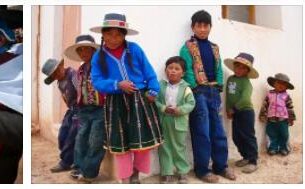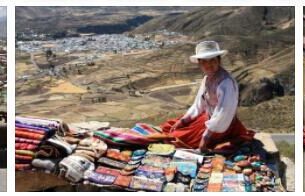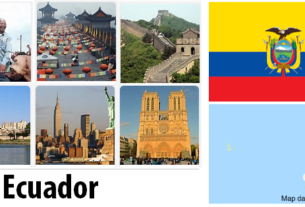Geography, population, religion . The capital is the city of Brasilia with a population of 411 thousand people, the population of the country is just over 16 million people. Total area 8511965 sq. km. Largest cities: Sao Paulo – 9394 thousand people. (1991), Rio de Janeiro – 5474 thousand people. (1991), Belo Horizonte – 1530 thousand people. (1991), Salvador – 2070 thousand people. (1991), Recife – 1297 thousand people. (1991), Porto Alegre – 1237 thousand people. (1991). Religion: The majority of the population is Catholic, but many people of African descent practice Makumba.
Climate: Average air temperature (December – January) +26° C, water +20° C. In the Amazon region – hot and humid. Winter is the drier season and lasts from June to September, summer lasts from November to April.
Language . Official – Portuguese. But in the resort areas, English, German and Italian are used.
Time . According to A2zgov, Brazil is divided into 4 time zones. Officially, the time is calculated in the capital and is 6 hours behind Moscow.
Currency . National currency – real. The exchange is recommended to be made in banks or in automatic machines at the airport. It is more profitable to offer dollars for exchange. 1 USD = 1.94 BRL
Water . Drinking tap water is not recommended. For this purpose, buy bottled mineral water.
Electricity . Basically 127 volts. In Brasilia, Florianopolis, Fortaleza, Recife and San Luis – 220 volts, in Manaus – 110 volts.
Phone and Internet . Call from Moscow: 8-10-55 (country code) +21 (Rio de Janeiro code). Red landlines work with tokens or cards, which can be purchased anywhere. Cellular communication – communication standards GSM 1800 and iDEN. Roaming is available to subscribers of major Russian operators.
There are a lot of Wi-Fi hotspots throughout the country. There are Internet cafes in major cities. Many hotels provide Internet access to their guests.
Security . For security reasons, it is recommended not to wear expensive jewelry, not to accept invitations from strangers and not to leave cameras, camcorders and money in the hotel room. There are a number of areas (even in the capital) where tourists are not recommended to go.
Tipping. Most restaurants include a 10% service charge on the bill, but leaving a few coins as a tip is a sign of good manners. A porter at the airport or hotel is charged USD 0.75 per item. Tipping must be left to hairdressers (10-20%), petrol station attendants, shoe shiners.
Shops and shopping . Wealthy travelers rarely leave without expensive souvenirs – blue and green emeralds. Those who are more modest acquire numerous handicrafts from the famous mahogany. Most shops are open from 9.00 to 18.30 (Mon-Fri), from 9.00 to 13.00 (Sat). Large shops are open until 22.00. From December to February in Rio de Janeiro – the peak season, so prices rise sharply.
Medical help. All visitors are provided with medical insurance. We advise you to carefully read the insurance conditions set out in your policy. In the event of an insured event, it is necessary to contact the 24-hour dispatch center of the service company, the phone number of which is indicated in the insurance policy, or contact the guide. We recommend that you bring any medicines you usually use with you. As of January 26, 2008, yellow fever vaccination, which was previously mandatory upon entry into Brazil, has been abolished. However, it is strongly recommended when visiting the provincial regions of the central and northern parts of the country and, first of all, the Amazon.
Sun. _ Use a high protection sun cream.
About movement
Taxi. The fare in a taxi is from 1 to 2 reais per kilometer. In a taxi, the bill is rounded up (the newer the car, the wider the mathematical range the driver operates), and a separate fee is charged for turning on the air conditioner. If the taxi driver helps carry luggage, the usual reward is 25 centavos per bag.
Car rent. The offices of the largest car rental companies (Hertz, Avis, National, Localiza, etc.) are located in airports and major cities. In order to rent a car, you must have an international driving license.
Important: All airports in the 27 countries of the European Union must check passengers’ hand luggage and not allow liquids in excess of 100 milliliters, with a total volume of no more than 1 liter, to be carried on board aircraft. Medicines and baby food are checked separately and are not limited in volume. Perfumes, drinks, alcohol and aerosols purchased from duty-free shops at the airport and packed in sealed plastic bags can also be carried in hand luggage. BUT!!! If a passenger has a flight with a transfer, liquids purchased at the airport of departure will not be allowed on board, they can only be purchased at the transfer airport.



